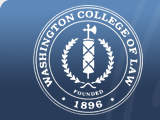Abstract
The National Labor Relations Board ruled in Columbia University that student assistants who have a common law employment relationship with their university are statutory employees under the National Labor Relations Act, which granted them full bargaining rights and union protection. However, just one year earlier, the Board decided to not address the question of whether college athletes receiving grant-in-aid scholarships should similarly be accorded the protections of the Act as statutory employees. Importantly, the Board noted that it was well-suited to make that determination in the future.
College athletes have been left in legal limbo as the teams, universities, and athletic conferences they work for have continued to profit exuberantly while denying them any substantial rights. The increased commercialization of collegiate sports has paralleled the prohibitive control that athletic conferences and universities exert over the athletic, social, and academic lives of college athletes. Thus, the Act-designed to prevent exploitation of labor-is the legal remedy available to college athletes seeking to reclaim their dignity and achieve equity in bargaining power.
This Comment argues that the Board's decision in Columbia compels a finding that grant-in-aid athletes, or college athletes, participating in revenue-generating sports at Division I private universities and colleges are employees under the Act. Specifically, Columbia's statutory and common law test, as well as the jurisdictional discretion standard, all require a finding that it is legally unsound to continue to deny-under the veil of "amateurism "-college athletes the protections available to them under federal labor law while conceding that student assistants are deserving of those same protections
Included in
Education Law Commons, Entertainment, Arts, and Sports Law Commons, Labor and Employment Law Commons

